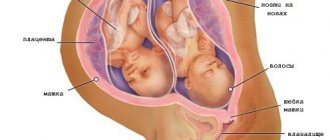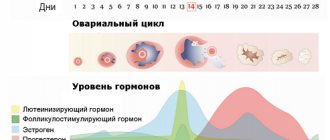How many weeks in a month
The converter below works in both directions.
| from to | days |
| or | |
| weeks days | |
| or | |
| months days |
Often asking the question “9 months is how many weeks,” a person is interested in calculating the length of pregnancy. After 280 days or 40 weeks or more than 9 months from the date of the last menstruation to pregnancy, childbirth occurs. After 42 weeks, pregnancy is considered post-term and in most cases, obstetricians prefer to induce labor to avoid risks for the mother and her baby.
Feelings at 9 weeks
It is not uncommon for a woman’s weight to decrease at this time. This is directly related to the presence of toxicosis, which is inherent in the first half of pregnancy. This physiological condition is accompanied by nausea, vomiting, acute intolerance to the smell of food, favorite perfume, etc. All this, of course, leads to a decrease in appetite and subsequent loss of body weight. However, it also happens that a pregnant woman does not experience “all the delights” of toxicosis. In the absence of attacks of morning sickness, the weight of the expectant mother begins to gradually increase. However, the fluctuation of the scale needle in the “plus” direction is still insignificant.
In addition, in the ninth week, physiological conditions such as:
- increased fatigue;
- dizziness that occurs at the moment of a sharp change in the usual body position or a sudden turn of the head.
The beginning of the 3rd month of pregnancy also has subjective signs. One of the most striking is considered to be sudden and sharp swelling of the mammary glands. This is how your body gradually rebuilds and prepares for the future process of breastfeeding a child. It is not uncommon for breasts to become a full size larger at 9 weeks of pregnancy. If the breasts swell in a short period of time, and the woman does not have time to come to her senses and start applying cream for stretch marks, then they will certainly “show off” on the bust. Unfortunately, it is very difficult to get rid of them forever, but you can make them less noticeable with the help of various creams.
What is a "full week"?
| January | 1 | 2 | 3 | 4 | 5 | 6 | |
| 2 | 7 | 8 | 9 | 10 | 11 | 12 | 13 |
| 3 | 14 | 15 | 16 | 17 | 18 | 19 | 20 |
| 4 | 21 | 22 | 23 | 24 | 25 | 26 | 27 |
| 5 | 28 | 29 | 30 | 31 |
| 1 | 2 | 3 | 4 | 5 | 6 | ||
| 2 | 7 | 8 | 9 | 10 | 11 | 12 | 13 |
| 3 | 14 | 15 | 16 | 17 | 18 | 19 | 20 |
| 4 | 21 | 22 | 23 | 24 | 25 | 26 | 27 |
| 1 | 28 | 29 | 30 | 31 |
| 2 | 3 | 4 | 5 | 6 | |||
| 1 | 7 | 8 | 9 | 10 | 11 | 12 | 13 |
| 2 | 14 | 15 | 16 | 17 | 18 | 19 | 20 |
| 3 | 21 | 22 | 23 | 24 | 25 | 26 | 27 |
| 28 | 29 | 30 | 31 |
How many days does pregnancy last for women in days weeks from conception?
Having experienced all the difficult and bad things that can happen during pregnancy (unpleasant symptoms, illnesses associated with the condition), over time, every woman remembers that period with a smile and talks about it as a wonderful time.
Photos: how much growth care changes difficulty in position baby new life dress in days lying phase
The expectant mother is looking forward to the moment when childbirth comes. Therefore, she tries to calculate this date as accurately as possible and asks how long a normal pregnancy lasts by day. There are some subtleties when calculating this period, but not everyone knows about them.
It is impossible to find out the exact and therefore final date when childbirth will occur, but you can approximately calculate how many days a woman’s pregnancy will last.
Human embryo
The date that doctors call is estimated. In some cases, it may coincide as closely as possible with the doctor’s prognosis.
Even if you know all the exact dates of ovulation and conception, it is impossible to determine the speed of sperm, how much time it takes for the egg to move through the tubes to the uterus, how long it will take for the fetus to develop, and for the child to be ready to be born.
Specialists use certain standards. Scientists have calculated that 226 days pass from the moment fertilization occurs to the onset of labor. This means that from the moment of conception, pregnancy lasts 38 weeks – that’s approximately 10 lunar months.
But there are times when a woman may not carry or carry the baby. In this situation, childbirth may not go entirely smoothly, which may further affect the health of the mother and child.
Premature pregnancy occurs between 27 and 28 weeks. Those who have been treated for a long time for the threat of miscarriage often carry it to term. Post-term pregnancy is more than 42 weeks.
Changes in the female body
The birth and development of a child is the most unusual and most natural thing that can happen in a woman’s life. The expectant mother carries the unborn baby within her for forty weeks, her body takes care of its nutrition, development, and supplies it with oxygen.
Carrying a child
Many people are interested not only in how many days the pregnancy will last from the moment of conception to the moment of birth, but also how the woman’s body and her sensations will change and develop.
First trimester (from 1 to 12 weeks).
The first weeks are the most crucial period, when the main organs of the child begin to form. The body gradually begins to prepare for the fact that it will be necessary to take care of another organism. The entire work of internal organs is being restructured. May appear:
- states of weakness;
- depression;
- frequent changes in emotional background;
- increased sensitivity to odors.
Gradually the body begins to change. The breasts swell and become more sensitive.
From 3 to 4 weeks, intestinal problems, constipation, and diarrhea may occur. Urination becomes more frequent. During this period, you need to balance your diet and stick to it for all days of the period while your pregnancy lasts. By the 12th week, all organs and parts of the fetal body are already formed, then it will only grow and develop.
Second trimester (from 13 to 27 weeks of pregnancy).
By the beginning of the second trimester, many women begin to feel much better. The body begins to get used to the changes and reacts less to what is happening. Early toxicosis passes. Appetite awakens, which often continues throughout the days of pregnancy.
You need to include proteins, fruits, vegetables in your diet and give up sweet, fatty, and unhealthy foods. Women during this period begin to gradually gain weight. The normal weight that needs to be gained is five to seven kilograms. The hips expand, the belly increases.
Sleep patterns may be disrupted - this is due to the fact that it is more difficult to find a comfortable sleeping position. It is recommended to sleep on your side. Features of this period.
- Heartburn may be painful because the uterus, along with its growth, puts pressure on the intestines. Oatmeal porridge is useful during such periods.
- Any medications can be taken only after the recommendation of a doctor.
- Heavy vaginal discharge often begins and sweating increases.
- Discomfort appears in the lower abdomen and lower back.
- Going to the toilet is happening more and more often.
If you feel well, you can do yoga and swimming in the pool. It is necessary to take walks in the fresh air, move more, but not overwork.
Third trimester (from 28 to 40 weeks). A woman’s body has already undergone many changes and there are not many weeks of pregnancy left before birth:
- the uterus is enlarged and puts pressure on the bladder and intestines;
- There may be stabbing pain in the legs;
- shortness of breath begins;
- the pulse quickens, you need to monitor your blood pressure.
Changes in the body are immediately noticeable
Weight should not increase by more than 300 g per week. But you can't go on diets. A clear liquid (colostrum) may be released from the mammary glands. Swelling of the limbs appears.
Headaches and nausea may bother you - if you experience such symptoms, you should consult a doctor. At 40 weeks, the uterus drops, and the woman literally feels it. Childbirth begins.
Also look at the signs of twin pregnancy and find out why your belly itches during pregnancy.
Action of hormones
Nature has provided that after conception, a woman’s pregnancy hormones are activated in order to make this period easier for her. It is necessary to ensure that emotions are under control. This is especially true for changes in the endocrine system. Hormones:
- main hCG: responsible for the proper development of the baby;
- placental lactogen: controls the risk of developing hereditary abnormalities;
- free estriol: controls blood flow to the mammary glands and uterus, prepares the woman’s body for feeding;
- prolactin, oxytocin or “motherhood hormones”: thanks to them, the mother tenderly takes care of the baby, feeds and communicates with him.
These hormones are important to make it easier for a woman to survive such stress (and childbirth is a serious test for the body and psyche). Therefore, from the day of conception and throughout pregnancy, these hormones play an important role, both physical and psychological.
Appetite increases
Actions of men during this period
The main thing is to maintain good relationships during pregnancy and after. Support your spouse during this difficult period for her. You need to be lenient about the sudden mood swings of the expectant mother.
Many men try to avoid communication with their wife during this period, but this should not be done. You shouldn't blame her - it's all hormones.
It is necessary to try to make the household as easy as possible. Due to the possibility of toxicosis, temporarily prepare food. Take on all physically difficult work yourself. After all, this is your child too. Avoid stressful situations.
Constantly seeking attention and affection
Get ready for your partner's figure to change. She'll get better anyway. A woman can bear this fact painfully. Your patience is needed here. You need to support her, try to control your words and actions, and be as loving and sensitive as possible during this period. Find out everything about the treatment of purulent sore throat during pregnancy.
- Sugar curve during pregnancy
- Signs of twin pregnancy by week
- Do menstruation occur during ectopic pregnancy?
- Why measure basal temperature during pregnancy?
- Where does it hurt during an ectopic pregnancy?
- At what week of pregnancy does the baby begin to move?
The information published on the website Sberemennost.ru is read-only and is intended for informational purposes only. Site visitors should not use them as medical advice!
Source: https://sberemennost.ru/pregnancy/skolko-dney-dlitsya-beremennost
How many weeks in a year:
A year may consist of 52 or 53 weeks. From a simple calculation
365 days in a year / 7 days in a week = 52.142857 366 days in a leap year / 7 days in a week = 52.285714 You can see that there are 52 full weeks in a year.
According to GOST ISO 8601-2001 “REPRESENTATION OF DATES AND TIMES”, as well as the European standard ISO 8601, if
- January 1 falls on a Friday, Saturday or Sunday, then the first week of the year has the serial number of the last week of the previous year
- January 1 falls on Monday, Tuesday, Wednesday, Thursday, then the first week of the year has the serial number “1”
- December 31st falls on Monday, Tuesday, Wednesday, then the last week of the year has the serial number “1”
Online calculator “Number of weeks in a year”
year number of weeks:
number of years: from to yy ⇄
weeks
Here you can see how many weeks are in a century, based on the calculation that 1 century is equal to 100 years.
Feelings at 9 weeks
It is not uncommon for a woman’s weight to decrease at this time. This is directly related to the presence of toxicosis, which is inherent in the first half of pregnancy. This physiological condition is accompanied by nausea, vomiting, acute intolerance to the smell of food, favorite perfume, etc. All this, of course, leads to a decrease in appetite and subsequent loss of body weight. However, it also happens that a pregnant woman does not experience “all the delights” of toxicosis. In the absence of attacks of morning sickness, the weight of the expectant mother begins to gradually increase. However, the fluctuation of the scale needle in the “plus” direction is still insignificant.
In addition, in the ninth week, physiological conditions such as:
- increased fatigue;
- dizziness that occurs at the moment of a sharp change in the usual body position or a sudden turn of the head.
The beginning of the 3rd month of pregnancy also has subjective signs. One of the most striking is considered to be sudden and sharp swelling of the mammary glands. This is how your body gradually rebuilds and prepares for the future process of breastfeeding a child. It is not uncommon for breasts to become a full size larger at 9 weeks of pregnancy. If the breasts swell in a short period of time, and the woman does not have time to come to her senses and start applying cream for stretch marks, then they will certainly “show off” on the bust. Unfortunately, it is very difficult to get rid of them forever, but you can make them less noticeable with the help of various creams.
Breastfeeding and complementary feeding
According to the norms, one-month-old babies should be fed only breast milk, except in cases where milk is objectively insufficient, or the doctor has recommended supplementary feeding or formula feeding. Also, the baby should be periodically offered warm boiled water at a temperature of 34-37 degrees (in a bottle with a pacifier). The child especially needs water if the room temperature is above 22 degrees, or you dress him in such a way that he constantly sweats (which is not desirable).
During the first month of life, a healthy child eats about 8 times a day, drinking about 60 ml of milk each time.











